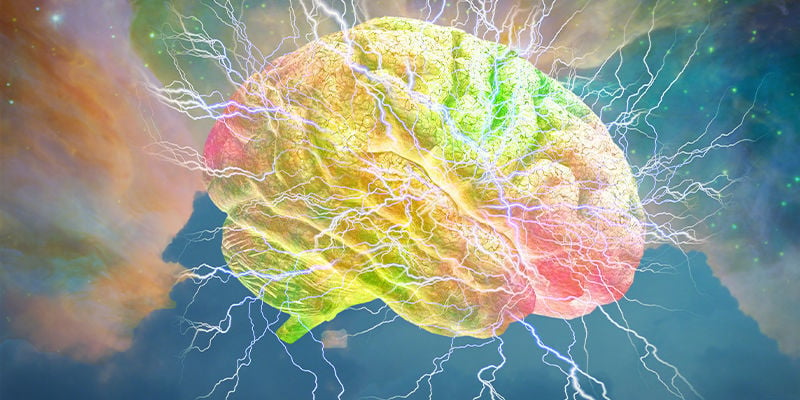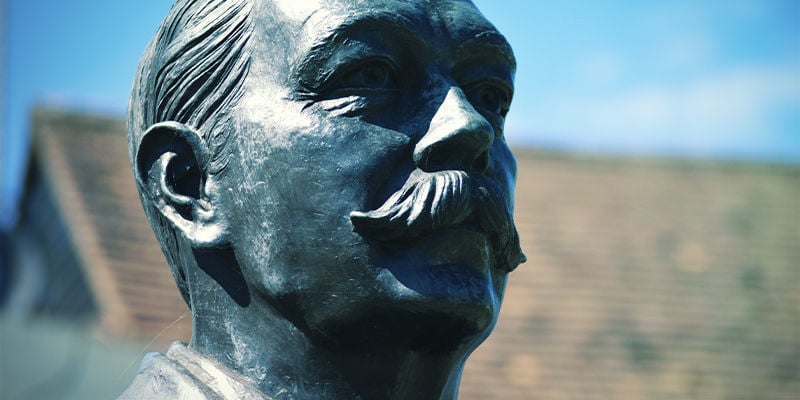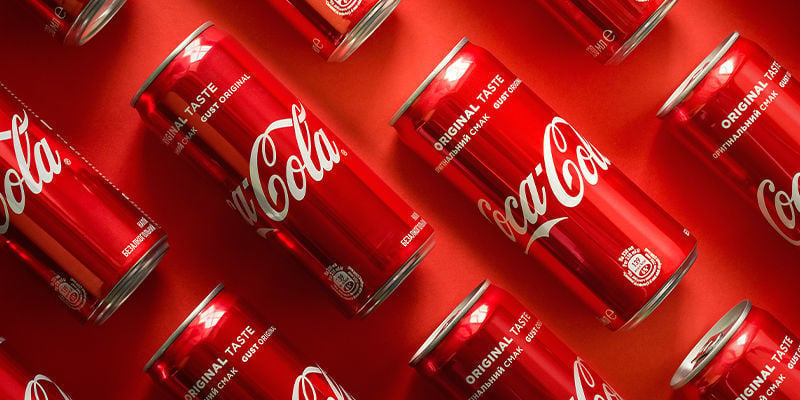
Illicit Drugs And Creativity
Illicit drug use has long been associated with more than just abuse. Creatives and entrepreneurial geniuses have long credited certain kinds of drugs for their accomplishments. We take a look at why.
Cannabis legalisation has restarted the discussion on the use of “mind-altering” drugs. So-called illicit substances have always held appeal. This is connected to the thrill of the forbidden. It is also connected to physical and mental sensations they can cause. Certain illicit drugs have always been associated with creativity and historical accomplishment.
DNA was supposedly discovered after Francis Crick had a great LSD trip. He envisioned the concept while high. His wife sketched his subsequent brainstorm of the double helix. Sigmund Freud was heavily under the influence of cocaine when he conceptualised “psychoanalysis.” Dock Ellis, a pitcher for the Mets, reportedly pitched one of the few strikeout games in the club’s history fuelled by LSD. The German army was fuelled through the Russian winter invasion during WWII by amphetamines.
Douglas Engelbart – the inventor of the computer mouse – credited the guided LSD sessions he took for this invention. Crick was also not the only scientist to credit LSD with his achievements. Nobel Prize winner for Chemistry Kary Banks Mullis did too. So did mathematician Ralph Abraham.
Aldous Huxley is one of many writers and painters who also credit LSD for inspiration. Huxley was also ironically, one of the people who warned about the dangers of overreliance of drugs. Brave New World is all about this theme. Samuel Taylor Coleridge reportedly used opioids to stimulate his creative impulses while writing Kubla Khan.
There is no doubt, in other words, that "illegal" drugs have in some cases caused individuals to accomplish great feats. Of bravery, creativity, courage or strength.
But what is it about using such substances that causes such effects? And why can drug use be so beneficial to some people and wreck the lives of others?
YOUR BRAIN ON DRUGS
These are questions that scientists are still struggling to answer. Science still cannot answer how the interplay of personal history, metabolism, addiction, trauma and drug use will affect individuals. Not to mention what drug or drugs are used.

The biochemistry of certain drugs also makes them more prone to abuse than others. Heroin triggers feelings of ecstasy and happiness. It also quickly shuts down breathing responses.
Cocaine creates a great deal of energy by triggering dopamine responses in the human body. However it is highly addictive because of this.
Cannabis, as science is finally discovering, not only causes euphoria, but also helps the body heal. So far, no-one has proved that it is addictive. Further fatal overdoses are unknown.
All of these drugs work in similiar ways. They stimulate or block biochemical responses in the brain. These then have knock-on impacts throughout the body. In the case of cannabis, for example, the metabolic processes impacted by the drug appear to be a master switch regulator.
However, controlled or illegal substances today have a long history of use for a reason. They change the brain works in some way. This, in turn, impacts stimulation or blockage of neuron-level connectivity throughout the body. This can make the user feel more "creative." It may also make the user feel better.
FAMOUS INVENTORS WHO USED DRUGS
The connections between art, creativity, innovation and drug use are well known. Thomas Edison was well known to use “cocaine elixirs." This was a once-popular drink made of cocaine mixed with Bordeaux red wine. Paul Erdös, one of the most prolific mathematicians who ever lived used amphetamines well into late old age. He claimed they improved his productivity.

On the purely fictional level, drugs and performance have long been linked. For example, Sir Arthur Conan Doyle made his famed detective Sherlock Holmes an opium addict. Holmes’s deductive genius was connected to his drug use and abuse.
Back in the real world, truth is often stranger than fiction. Some of the most famous inventors have used mind altering drugs. Many have also claimed this made the difference in their success. For example, Steve Jobs used LSD. The computer genius later said this was “one of the two or three most important things he had ever done in his life.” He even went so far as to criticise Bill Gates’s supposed lack of creativity with failure to use drugs.
LSD AND DNA
There is some controversy over the connection between the discovery of DNA and LSD. Reports began surfacing in 2004 after the death of Francis Crick. The story is that he was micro-dosing on LSD when he conceived of the double helix. Other academics during the 1950s and 1960’s certainly believed that LSD “opened another level of consciousness.” Perhaps most influential on this front was Timothy Leary.

WHO WAS TIMOTHY LEARY?
Leary was an American psychologist known for advancing the use of psychotropic drugs in therapy. He pioneered research with both LSD and hallucinogenic mushrooms at Harvard. The influence of his work spread through the counter-culture movement. Richard Nixon once dubbed him the “most dangerous man in America.”
COCAINE AND PSYCHOTHERAPY
The use of certain kinds of drugs in psychotherapy starts with its founder. Sigmund Freud pioneered the field. Freud moved away from publicly promoting the drug before the beginning of the 20th century. However, he continued to use it personally.
Central to Freud’s work was one idea. Talking about the past without fear of censure was one way to come to terms with it. He also believed that dreams are the fulfilment of unfilled reality. Freud credited cocaine with giving him the courage to engage in this practice himself.
COKE AND COKE
Freud’s writings influenced society far beyond the psychoanalyst’s couch. One of the most famous commercial instances is Coca Cola. Invented by Atlanta pharmacist John Pemberton. The drink was originally made with real cocaine. The coca was eventually removed from the drink. However, coca is still used as a stimulant by Native South American tribes.

WHAT DOES ALL THIS MEAN FOR ME?
That is a very personal question. The choice of taking certain kinds of drugs is a very personal one.
With cannabis entering sports, expect a good deal more discussion on just this topic from now on. However, beyond endurance, drugs are also used to stimulate what is also known as “creativity.” This creativity, in turn, helps them see a problem in a new way.
This is because many of the drugs described as “mind altering” actually do alter how the brain works. Psychoactive substances alter time sense. This means that both chronology and a sense of time become blurred. Cause and effect also becomes disordered. Logical outcomes not seen before can even coexist. Many people also take such substances to lose feelings of self-consciousness which can inhibit speech, action or deed.
Biochemically, what this means is that the brain is causing the firing of neurons throughout the body which then create such feedback and sensations in the brain. Drugs which release high levels of dopamine into the body, for example, literally change the bath of chemicals influencing the brain.
As much as such drugs can be used for creative purposes that are positive, however, there is always a fine line. Addiction, particularly to drugs like cocaine and amphetamines is also a mark of many of the celebrities who dabbled in drugs to create their success.
The reality is that success in the material world is usually the result of training, perseverance and discipline. Those who use drugs to improve performance are not “lazy.” Nor have they succeeded “just because” of their drug use. Tell that to the triathletes who are using cannabis to improve their endurance. However, the line between life enhancement and destructive is a difficult one to judge for most people.
At the end of the day, it is more important to be safe than sorry. We do not endorse the use of illicit drugs, but adults make their own decisions. Knowledge is key in this situation - inorder to make informed choices.
-
 7 min
6 February 2020
Guide To The Effects Of LSD On The Mind And Body
LSD or “acid” is one of the most popular and powerful psychedelic substances, effective in tiny doses measured in millionths of a gram. What really goes on in your brain when you take a blotter?
7 min
6 February 2020
Guide To The Effects Of LSD On The Mind And Body
LSD or “acid” is one of the most popular and powerful psychedelic substances, effective in tiny doses measured in millionths of a gram. What really goes on in your brain when you take a blotter?
-
 4 min
3 January 2019
The Top 10 Most Bizarre Legal Highs
It is only natural to want to push the boundaries of understanding, but these examples of the weird ways people try to get high are instead pushing the boundaries of the nonsensical.
4 min
3 January 2019
The Top 10 Most Bizarre Legal Highs
It is only natural to want to push the boundaries of understanding, but these examples of the weird ways people try to get high are instead pushing the boundaries of the nonsensical.
-
 3 min
28 October 2013
A Visionary Romance: Steve Jobs And LSD
One of the most innovative minds of our time is thought to have owed some of his inspiration to hallucinogens. As it turns out, Steve Jobs, co-founder of Apple, and technology extraordinaire was...
3 min
28 October 2013
A Visionary Romance: Steve Jobs And LSD
One of the most innovative minds of our time is thought to have owed some of his inspiration to hallucinogens. As it turns out, Steve Jobs, co-founder of Apple, and technology extraordinaire was...













 United States
United States










